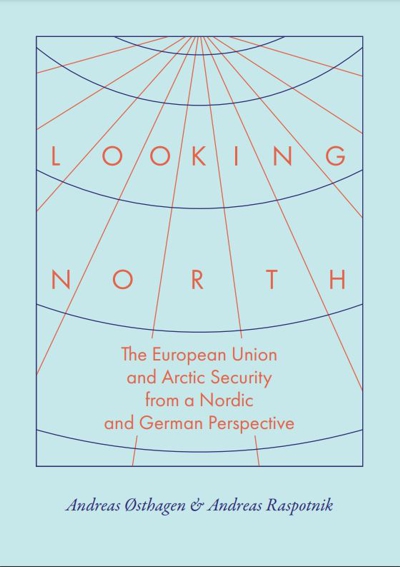Publication: Looking North - The European Union and Arctic Security from a Nordic and German Perspective
To download the publication please click on the download link at the bottom of the page
Authors: Andreas Østhagen & Andreas Raspotnik
CNARC member: Fridtjof Nansen Institute (FNI)
Recommendations: In this report, we have provided a comprehensive overview of Arctic security and the role of the European Union (EU) in that specific policy field, as seen from the Nordic countries and Germany. The value in endeavour lies not only in providing an EU specific approach to Arctic security issues, but also to better comprehend challenges the EU must grapple with when further developing its Arctic policy. Based on the individual reports by each author and a related workshop in May 2021, three themes and recommendations are in our opinion evident for the EU’s future role in matters of Arctic security:
- Recommendation #1: Define the (security) niche the EU could engage with in the Arctic. First, this would require a concrete concretization of the region’s security situation; not only from a supranational perspective but essentially also from a Member States’ perspective. Second, an outline is needed of the EU’s capacity to efficiently tackle the defined security risks. Thirdly, the EU would need to consider and explain whether, and how, the interplay between its security definition and its security capacity leads to a meaningful niche that the EU could play in the Arctic region’s broad security complex. Leaning on a recognition of the different levels of geopolitical dynamics taking place in the circumpolar area could help this undertaking.
- Recommendation #2: The ‘EU Arctic spectrum of capabilities’ should serve as framework for the updated policy and act as trigger to a more confident relationship with Russia. The EU can already pick from a broad toolbox of regional competences, expertise and initiatives. A framework that starts with concepts on small but nevertheless important cooperation issues, as for example search and rescue efforts and cross-border environmental cooperation, can help move the stagnant EURussia political dynamic onwards while also providing added value to the entire Arctic region. This ‘spectrum structure’ would be dependent on the EU to be the region’s honest broker and to act in the Arctic without artificially fuelling conflict narratives or being perceived as an Arctic security actor in the typical sense.
- Recommendation #3: Increase Arctic knowledge within Member States and better communicate EU (supranational) capacities to the Arctic community. Too often the Arctic is only and quite simplicity depicted as a region to protect, used as poster boy of climate change. In fact, many of the dynamics that are leading to increased great power rivalry and bellicose statements in the Arctic are not related to climatic change at all, but come as a consequence of the worsened relations amongst Arctic-engaged actors (China, Russia, the United States, or the EU) more generally. The EU (and European states) continue, however, to benefit from keeping the region somewhat ‘separate’ from other troubles of international nature. Examining, communicating and deliberating these Arctic regional dynamics and interests should eventually be placed on the EU’s foreign and security policy agenda.
As such, the EU needs to expand the language it uses for Arctic hard security without simultaneously overstating the security aspect. It needs to find a new way to properly address Arctic securitisation, and related (Russian) realpolitik, that goes beyond proposed technical and regulatory solutions for Arctic/international problems. Beyond learning the language of power, the EU should also develop the mindset and most of all the means to exert power.
Article pointed out by FNI: Find your Niche: The European Union and Arctic Security pp. 130-154


